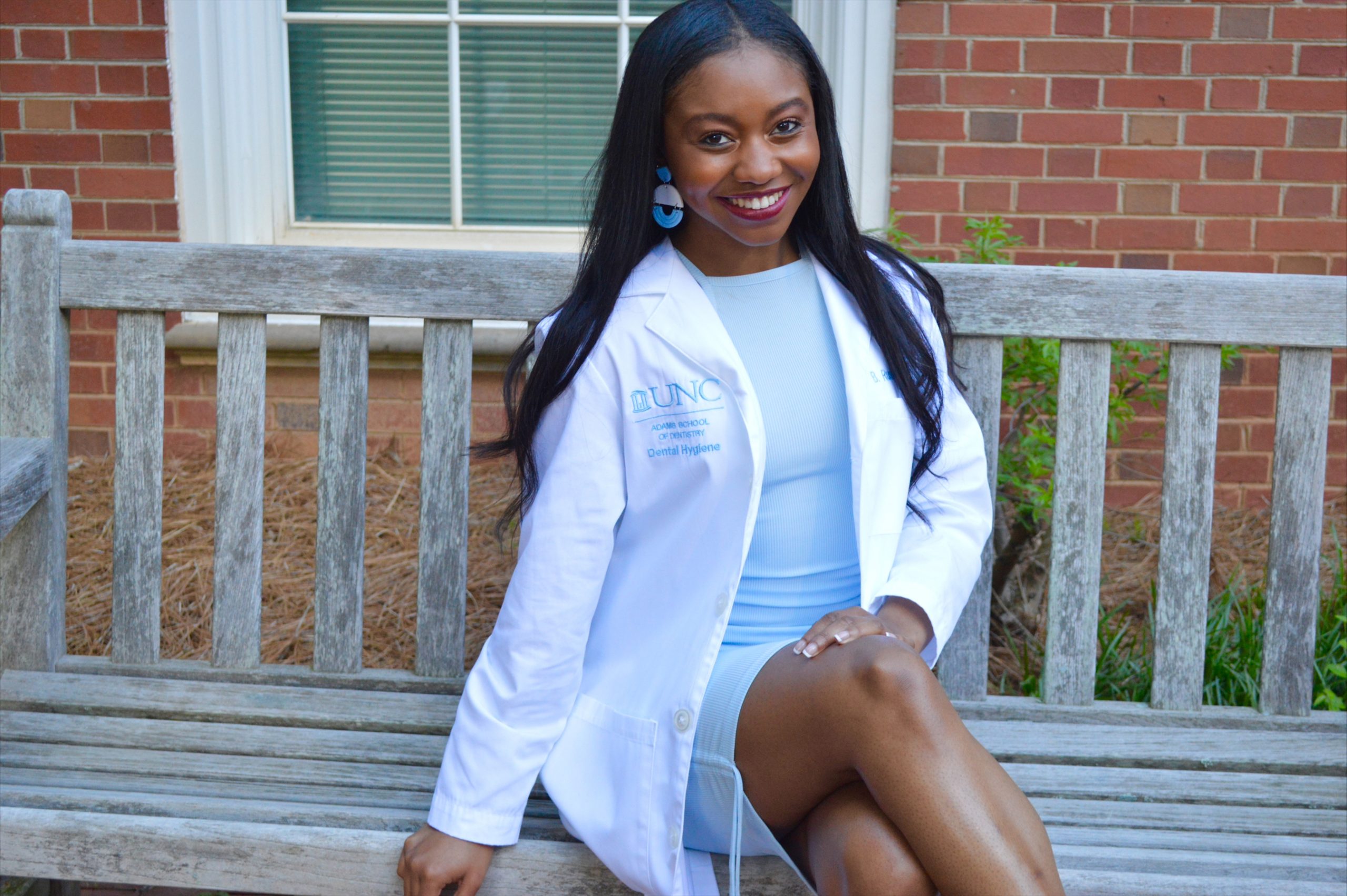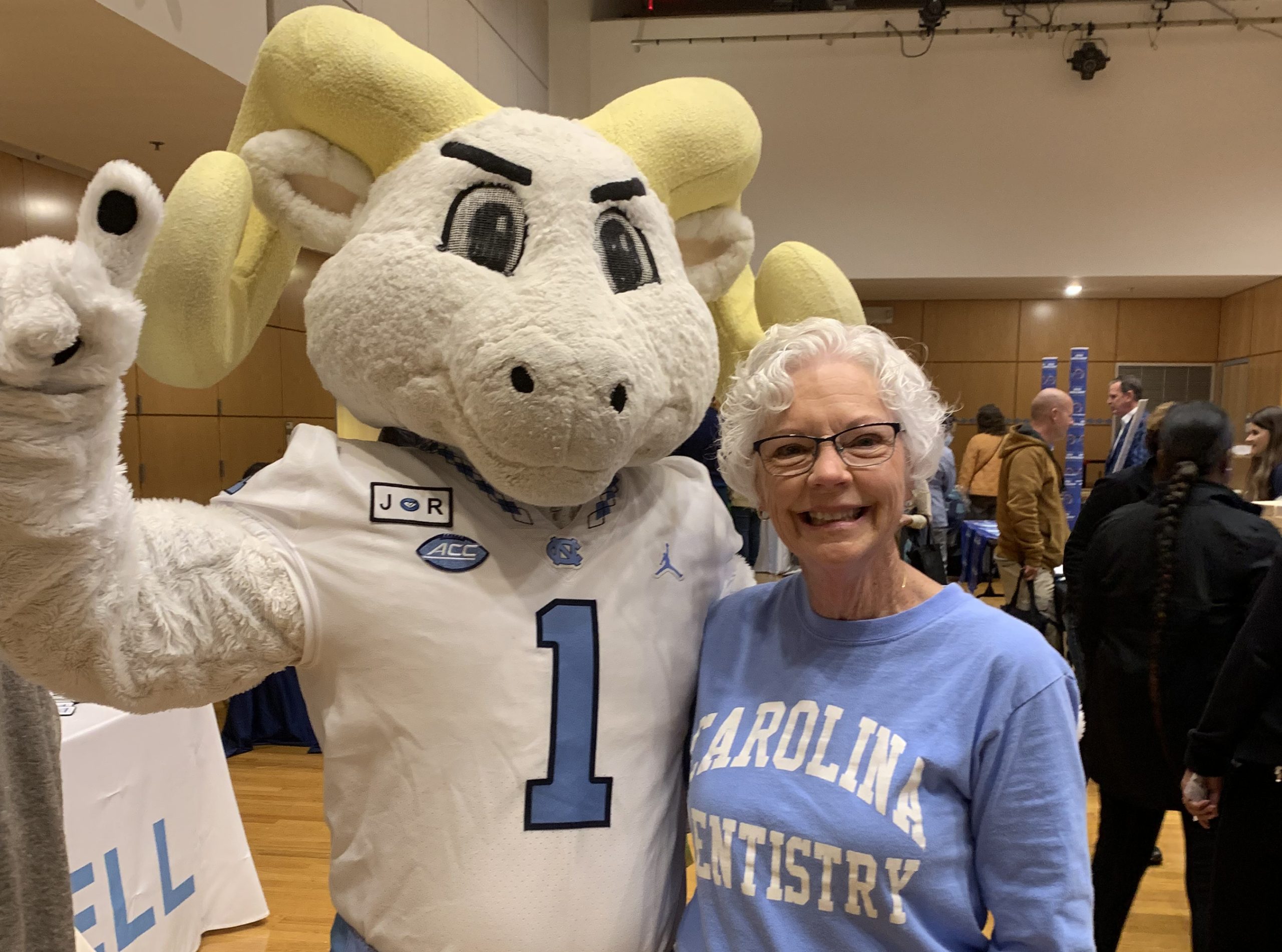Adams School of Dentistry Students Named North Carolina Albert Schweitzer Fellows

The North Carolina Albert Schweitzer Fellowship has selected Amanda Swanson, DDS Candidate 2023, and Scott Philips and Chris Lane, DDS Candidates 2021, for 2020 J. Bradley Wilson Schweitzer Fellowships.
Kate Ciarrocca, DMD, MSEd, will be Swanson’s mentor, along with Ryan Lewis, MSN, RN, FNP-BC, and Jamie Burgess-Flowers, MSW, LCSW. Allen Samuelson, DDS, will be Philips and Lane’s mentor, along with Jim Hoke, DDS, volunteer dentist at the Samaritan Health Center (SHC).
Swanson will collaborate with first-year UNC School of Medicine student, Micayla Jones, at the Carolina Dentistry Integrated Health Services. They hope to address shortcomings for patients managing hypertension through interprofessional health care services.
“Often, patients who travel to Carolina Dentistry, many from hours away and facing significant transportation barriers, are unable to receive their scheduled treatment due to poorly managed or undiagnosed high blood pressure that poses safety concerns in the dental setting,” said Swanson. “For those without a primary care provider, this means returning home with no professional support to help manage their condition.”
Their project will provide patients who enroll in the program with education materials, such as blood pressure tracking cards and visual demonstrations, and a blood pressure monitor to help them track their blood pressure at home. They will periodically check in with patients via telemedicine to encourage success through accountability and connect patients with resources in their home communities. Their goal is to improve patients’ long-term health outcomes and self-efficacy, in addition to facilitating safe delivery of dental care.
“The novel aspect of this project is that it is truly embracing the notion of ‘no wrong door’ to healthcare,” said Ciarrocca. “More than 27 million Americans seek oral health care annually who do not seek primary health care. Because this project’s intervention occurs in a dental setting, we have the unique opportunity to provide interprofessional care in an otherwise underserved setting. And because it is also in an educational setting, we are training future health care professionals that caring for people in interprofessional teams should be the standard and not the exception.”
Lane and Philips are providing free dentures and comprehensive oral health care to improve the quality of life of homeless patients at the SHC.
“We feel so fortunate to have the opportunity to expand our patient care at SHC to a level beyond what we are able to accomplish at our emergency-focused clinics,” added Philips. “We look forward to restoring the smiles and oral function of these inspiring people and to being a part of their journey to a fresh start.”
Last year, the dental clinic at the SHC provided care to more than 500 patients – an all-time high for the clinic. This was also the first year of a partnership with the NC Schweitzer Fellows to provide dentures for patients – Trent Bottoms, DDS ‘20, and Samantha Sloand, DDS ‘20, partnered with the SHC to provide dentures and oral health education during their fellowship in 2019.
“This project is beneficial for an often forgotten and underserved population of our citizens,” said Samuelson. “In a small, but significant way we are helping these people gain back oral masticatory function as well as esthetics that provide dignity, improve nutrition and facilitate employment opportunities. I am proud of our students for serving in this way.”
Upon completion of their initial year, the students will become Schweitzer Fellows for life, a network of more than 4,000 individuals who are skilled in and committed to addressing the health needs of underserved people throughout their professional careers. Read about the other fellows here.
The North Carolina Fellows Program is a part of the U.S. Schweitzer Fellows Program, and provides a one-year interdisciplinary, mentored fellowship program focused on health-related community service and leadership development.
The program gives students the opportunity to provide health service to underserved populations with real-life situations where students can use their skills and knowledge, collaborate across disciplines, and exercise leadership skills by working with and influencing community-based organizations, local leaders and more.





